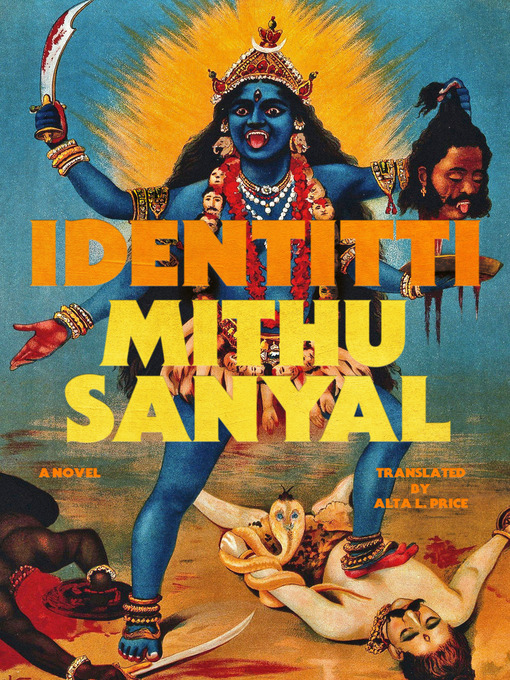Review by Booklist Review
Nivedita, a German Indian doctoral student, has a popular blog which involves conversations that she has with the Hindu Goddess Kali about "race and sex." Nivedita struggles with her identity and articulating what she feels, and she idolizes her advisor, Saraswati, a superstar scholar of postcolonial studies who is famous for debating people such as clinical psychology and YouTube personality Jordan Peterson. However, Saraswati is not who she seems. Like Rachel Dolezal or Jessica Krug in real life, Saraswati is pretending to be a person of color. What is so unusual about Sanyal's debut novel is that Saraswati is unrepentant, and Nivedita alongside her cousin, Priti, interrogate Saraswati at length, and the question Why? permeates all of their interactions. While others react with rage, largely on social media, Nivedita begins to doubt all she has learned about herself from this incredibly well-read charlatan. This is a searing satire, one similar to those of Percival Everett or Paul Beatty, and a tale that uniquely blends fact and fiction by using real comments and tweets from public intellectuals as if Saraswati is real. Sanyal has created an exhaustively researched, entertaining, and timely novel about the ways social media and scandals dictate so much of the discourse about identity politics.
From Booklist, Copyright (c) American Library Association. Used with permission.
Review by Kirkus Book Review
A celebrated professor who passes for Indian is revealed to be White. Is she a fraud or a trailblazer? This provocative fiction debut and satire of identity politics by Sanyal, a German academic, centers on Saraswati, a Düsseldorf professor who's infamous for her outspoken proclamations about race and social justice: She's shut down Jordan Peterson in debate and kicked White students out of her courses. She's a hero to Nivedita, a graduate student who's been inspired by Saraswati to explore her own mixed-race background and launch a blog under the name Identitti. So she's crushed when it's revealed that Saraswati isn't South Asian but a White woman named Sarah. Commentators quickly break out the hashtags (#SaraswatiShame) and liken her to Rachel Dolezal, the White college instructor who presented herself as Black. But Saraswati doesn't retreat. She insists that race, much like gender, can be fluid and that her leaning into racial issues represents a noble rejection of Whiteness. "So it's okay to transcend your gender, but a category as obviously made-up as race should be more fixed and inflexible than sex?" she asks Nivedita, and the narrative is thick with such questions. Sanyal mocks Saraswati's privilege and sanctimony but takes her perspective seriously; the book refers often to writers on race, gender, and postcolonialism, from Frantz Fanon to bell hooks to Zadie Smith. Though the novel is effectively a long series of conversations in an apartment among Saraswati, Nivedita, and other interlocutors, it has a surprising liveliness thanks to Sanyal's knack for sending up academia and social media pile-ons and her canny interweaving of Hindu mythology. (The goddess Kali provides an extended metaphor.) "What it means to be white must be allowed to change and expand," Saraswati insists, and the novel is an eyebrow-raising prompt to debate the matter. A deliberately over-the-top but sensitive take on multiple touchy subjects. Copyright (c) Kirkus Reviews, used with permission.
Copyright (c) Kirkus Reviews, used with permission.


